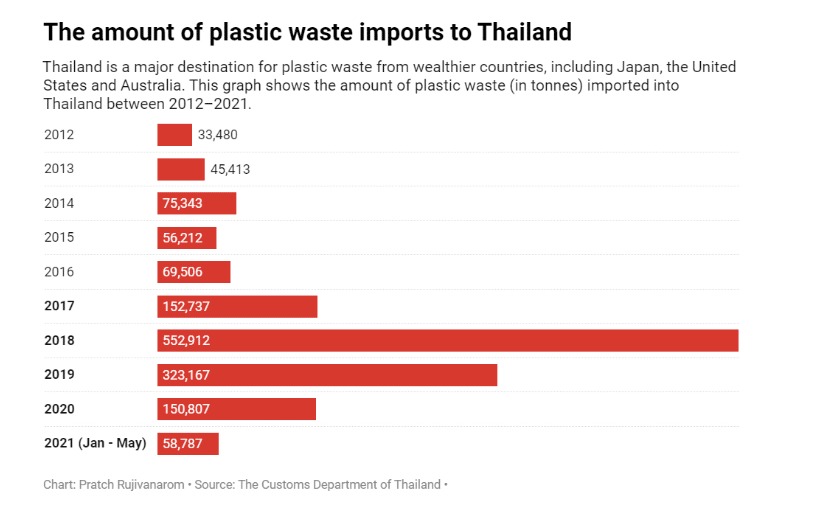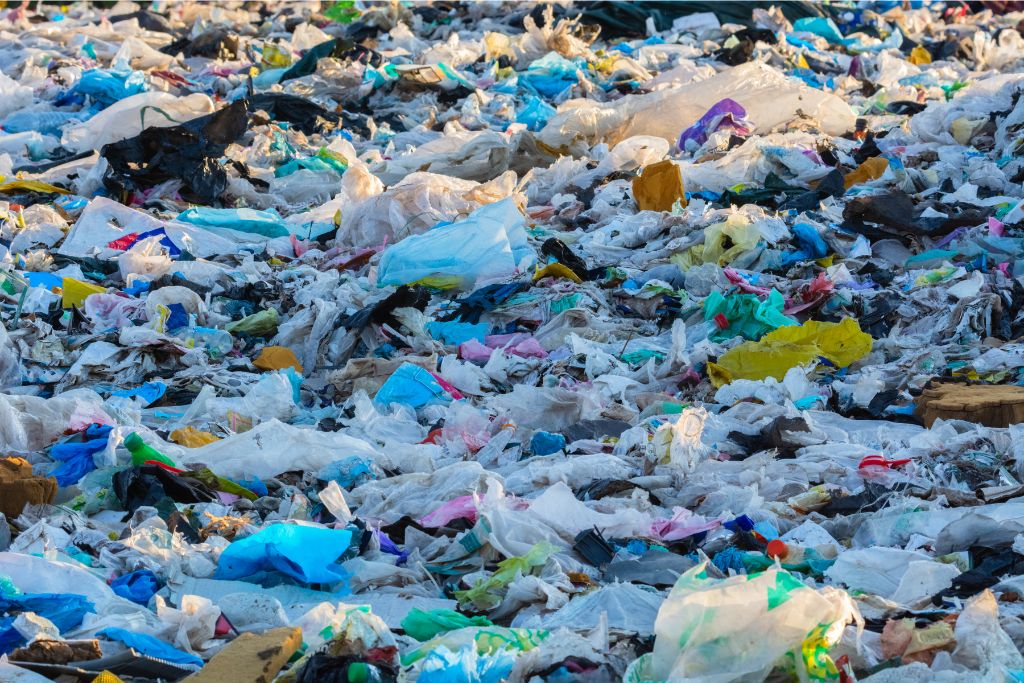Thailand’s ban on plastic waste imports, which has been discussed since 2020, will be carried out in phases over the next three years. The Southeast Asian nation increased its intake of plastic waste from rich countries following China’s import ban in 2018.
—
Thailand will ban all plastic waste imports by 2025 in a three-stage plan as part of a greater plastic reduction movement to control pollution and protect people’s health.
This year, only 14 manufacturers in Thailand’s free trade zone that use scraps as raw materials are allowed to import plastic waste, which, however, must not exceed their combined production capacity, equivalent to approximately 372,000 tonnes. By next year, inflows will be cut by half before the total ban on shipments enters into force in 2025.
The ban has been discussed since 2020, as officials seek to stop the flood of plastic from Western nations that has contributed to hazardous levels of air and water pollution in the country.
You might also like: 8 Shocking Plastic Pollution Statistics to Know About
Thailand and other developing countries, especially in Southeast Asia, have acted as the dumping ground for foreign nations’ trash for decades. Until 2017, China was the world’s largest importer of plastic waste, bringing in an average of 8 million tonnes of plastic a year from more than 90 nations around the world. To tackle the pressing plastic pollution crisis, the Chinese government introduced an import ban on solid waste, including several types of plastics and other recyclable waste.
Since then, big exporters like the US, which was shipping about 4,000 containers of garbage to China every day before the ban came into effect, rerouted most of their trash to Southeast Asia nations such as Vietnam, Malaysia, and Thailand.
According to Customs Department statistics, plastic waste imports in Thailand were 10 times higher than the average amount imported before 2015, surpassing 500,000 tonnes.

Plastic waste imports to Thailand, 2012-2021. Image by Pratch Rujivanarom/ Heinrich Böll Stiftung.
“Thailand must not be a dump site for plastic waste,” minister of natural resources and environment Varawut Silpa-archa said last September, when plans for the ban were first announced. “By the end of the next three years, we will not allow any import of plastic scraps from around the world. We need to protect our country.”
Just like with China, experts fear that Thailand’s import ban on plastic waste will have severe repercussions everywhere else. However, it is also true that, as the global leader in plastic production and one of the most polluting countries in the world, China had to take action and so should other countries. Waste is the fourth-largest sector of emissions and plastic alone is set to generate more carbon emissions than coal by 2030, making plastic pollution one of the biggest environmental problems of our lifetime.
While the immediate repercussions of Thailand’s policies represent an issue for nations around the world, the ban will also force them to find new ways to deal with their own waste and implement new policies aimed at reducing overall plastic circulation.
You might also like: What Are the Consequences of China’s Import Ban on Global Plastic Waste?




















